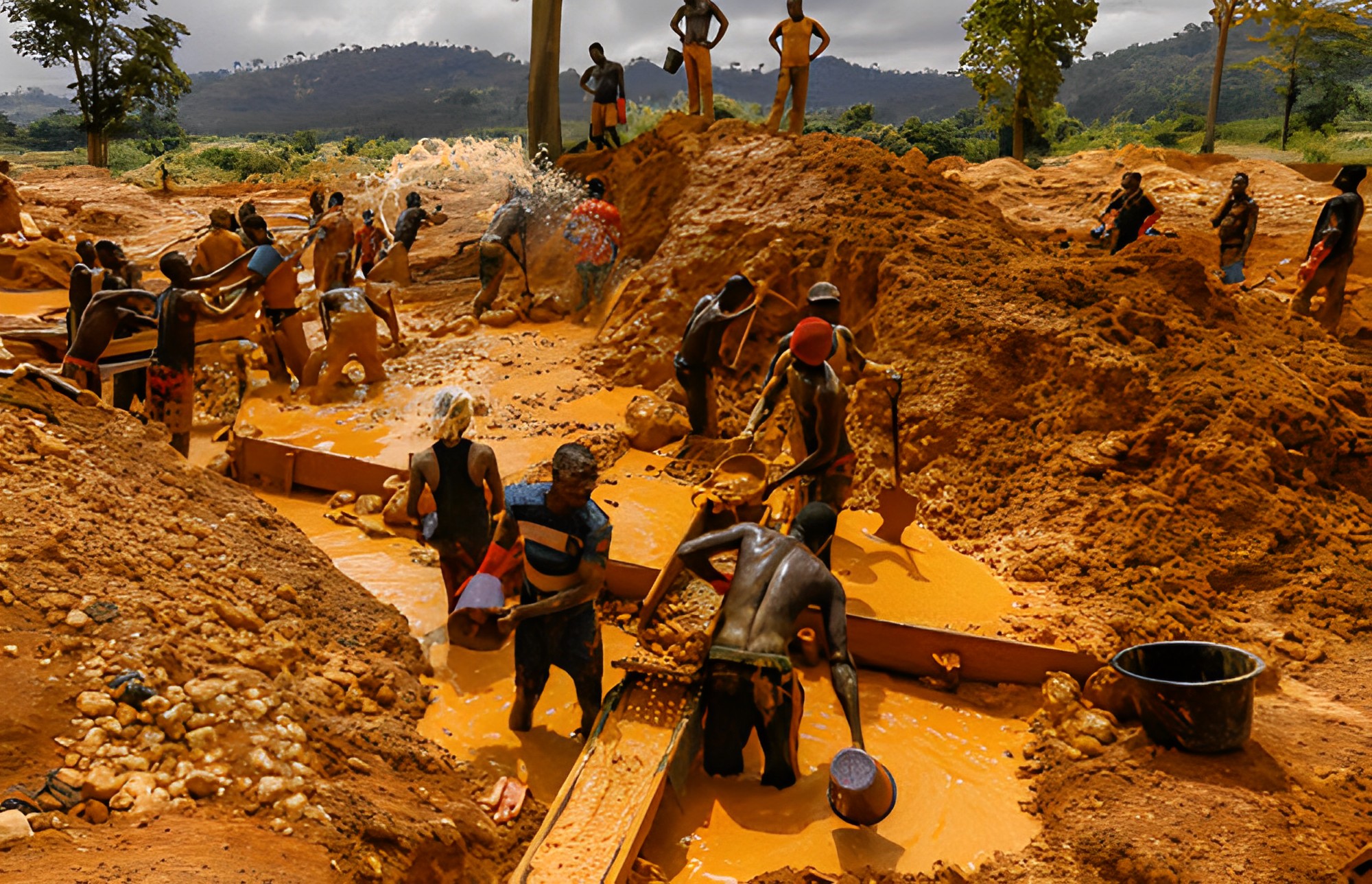
Illegal Mining Practices
When he was nine, Frimpong started helping on his family’s cocoa farm by clearing weeds, planting cocoa beans, and carrying harvested cocoa to the place where it would be dried. He took over the farm when he was eighteen, dedicating his entire life to cultivating cocoa on his ancestral land in Oblogo, just like his parents and grandparents before him. However, as the years went by, Frimpong’s cocoa farming became less profitable as weather patterns changed, trees aged, and markets fluctuated. Struggling to support his growing family, Frimpong found himself at a crossroads. When illegal miners looking for gold and other precious minerals offered to buy his land, Frimpong had to choose between the land and his family's needs.
Artisanal mining poses grave risks to cocoa farming. The mining process uses chemicals such as mercury and cyanide that contaminate the soil, water, and surrounding areas. The toxic substances harm cocoa tree health and compromise the quality of the beans. Illegal mining activities also endanger the availability of clean and safe drinking water, which is crucial for human health and the well-being of the environment (Obiri-Yeboah et al., 2021).
Mining especially harms the environment by stripping the land bare. Deforestation results in soil erosion, loss of biodiversity, and disrupted ecosystems. The loss of trees also has a profound impact on the local climate. The absence of a forest canopy leads to increased exposure to the sun, resulting in higher temperatures and reduced rainfall. This shift in weather patterns further exacerbates the challenges faced by the remaining cocoa farmers, making it even more difficult for them to sustain their livelihoods (Negret et al., 2019).
Struggling farmers are aware of the long-term consequences of illegal mining, but many, like Frimpong, still sell their land (Laari, 2018). They are ultimately enticed by the promise of quick wealth, which can provide their children with an education and improve their families’ living conditions. Still, the effects of their decisions ripple through the entire community. As Frimpong’s neighboring cocoa farmers depended on the surrounding forests for shade and protection against extreme weather conditions, they too experienced reduced yields and struggling crops, which forced them to sell their lands as well.
Frimpong's experience as a cocoa farmer shows the tough problems that many people in the industry face. Illegal mining hurts farming and the environment with harmful chemicals and deforestation, both of which disturb the area’s natural balance. Farmers have to make tough choices to take care of their families, but their actions also affect other farmers nearby and make it harder for cocoa production to keep going in a sustainable way.